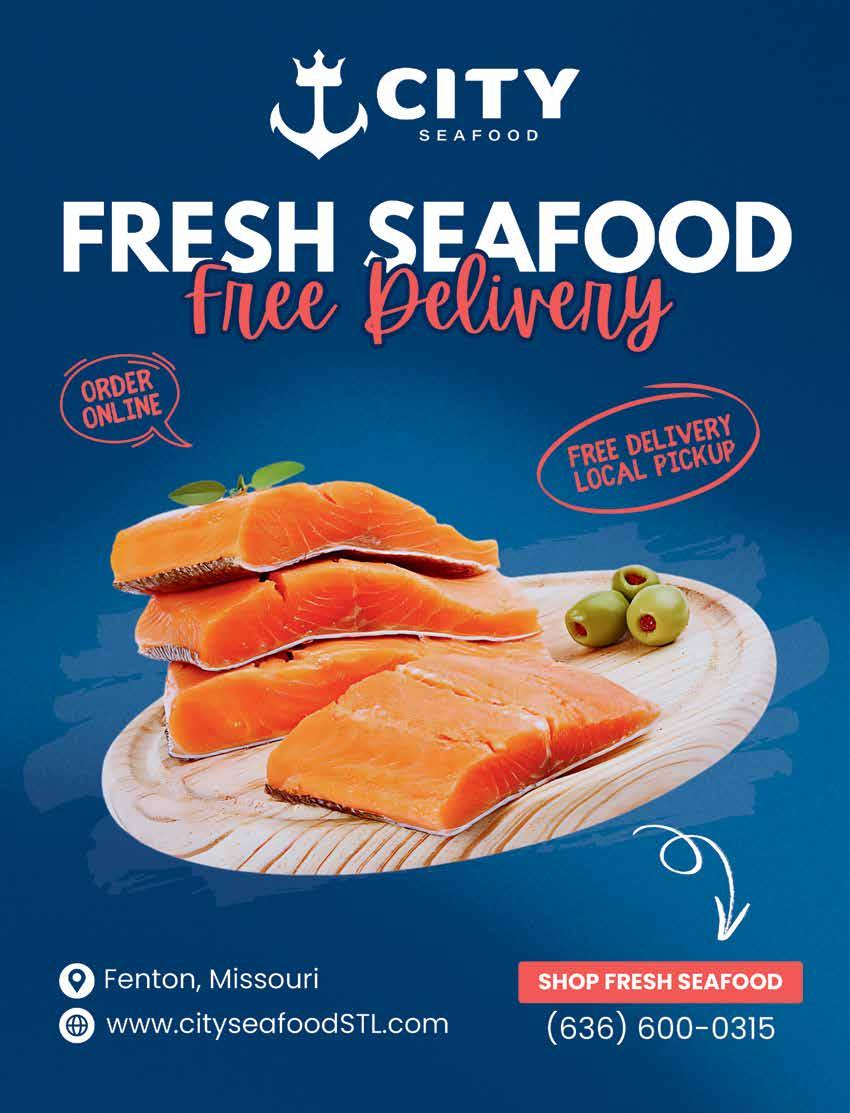












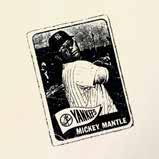
I didn’t get it. Why would someone have so many baseball card binders? The year was 1985, and collecting baseball cards was a thing. So was standing in line for hours to pay Henry Winkler to sign a picture of “The Fonz.” I don’t get that either. Jay said they were investments. I couldn’t see how baseball cards and multiple pictures of Fonzie were an investment. Fast forward to 1993. Jay and I were ready to buy our first house. We had great jobs, but since we were fresh out of college, we didn’t have stockpiles of cash for a 20% down payment. Do you know what we did have stockpiles of? Baseball cards. Two things were true at that moment: 1) I didn’t believe Jay when he said his baseball card collection could cover the down payment. 2) I didn’t understand the emotional sacrifice he made for us when he sold his collection. This guy LOVES baseball cards! He’s like a savant. He can talk about every detail of every baseball card from the 70s and 80s. Jay sold his collection - including the Mickey Mantle - and it covered the down payment. The picture above has hung by the front door of that house and every house we’ve had since our first house. Reading the story of Brad Burns in this issue reminded me that some people can see an investment opportunity where others can’t. I didn’t have Jay’s vision for the future regarding the value of a baseball card. I also couldn’t see Jay’s vision for the future when we drove the boys to Milwaukee just to see a statue of Fonzie. They were seven and eleven at the time. The boys had never even heard of Happy Days . “It doesn’t matter,” Jay said. “I’ll fill them in.” So for the next SIX hours, Jay detailed, episode by episode, antics of Richie and The Fonz. When the boys went to college, Jay gave them his pictures of Fonzie to hang in their dorm rooms. (Oh, of course , Jay had those pictures hanging in his dorm room.) The boys proudly hung their pictures in their dorms and now in their apartments. Their girlfriends think it’s cute. I get that. The baseball cards and the six-hour drive to see a statue… as investments go, those were two of the best.
PUBLISHER
Renee Moore | renee.moore@citylifestyle.com
EDITORIAL COORDINATOR
Kate Berry | kate.berry@citylifestyle.com
CONTRIBUTING WRITERS
Lucy Rogers, Jerry Rosen, Andrea Maddock, Tim Schulze, Katie Elizabeth, Lorilee Cummings
CONTRIBUTING PHOTOGRAPHER
Adam Huber
CEO Steven Schowengerdt
COO Matthew Perry
CRO Jamie Pentz
CTO Ajay Krishnan
VP OF OPERATIONS Janeane Thompson
VP OF SALES Andrew Leaders
AD DESIGNER Evan Deuvall
LAYOUT DESIGNER Adam Finley
QUALITY CONTROL SPECIALIST Hannah Leimkuhler


Learn how to start your own publication at citylifestyle.com/franchise.


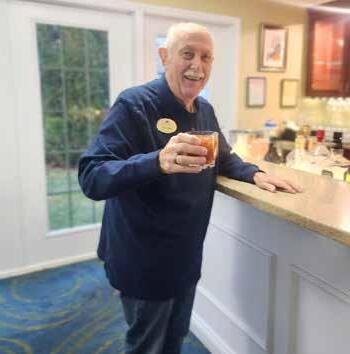





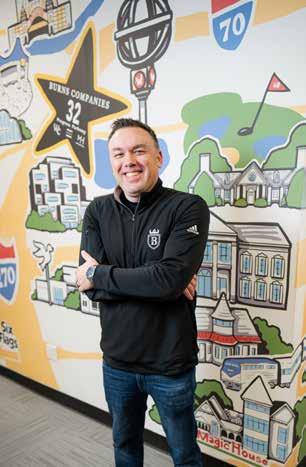
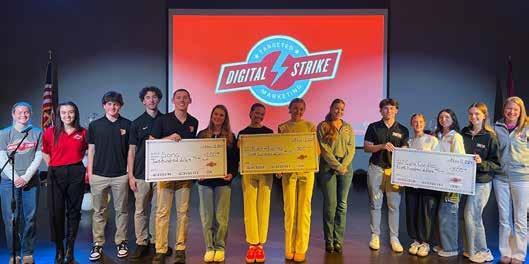
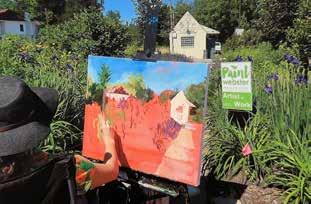
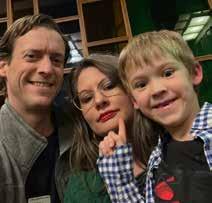
Observations
The
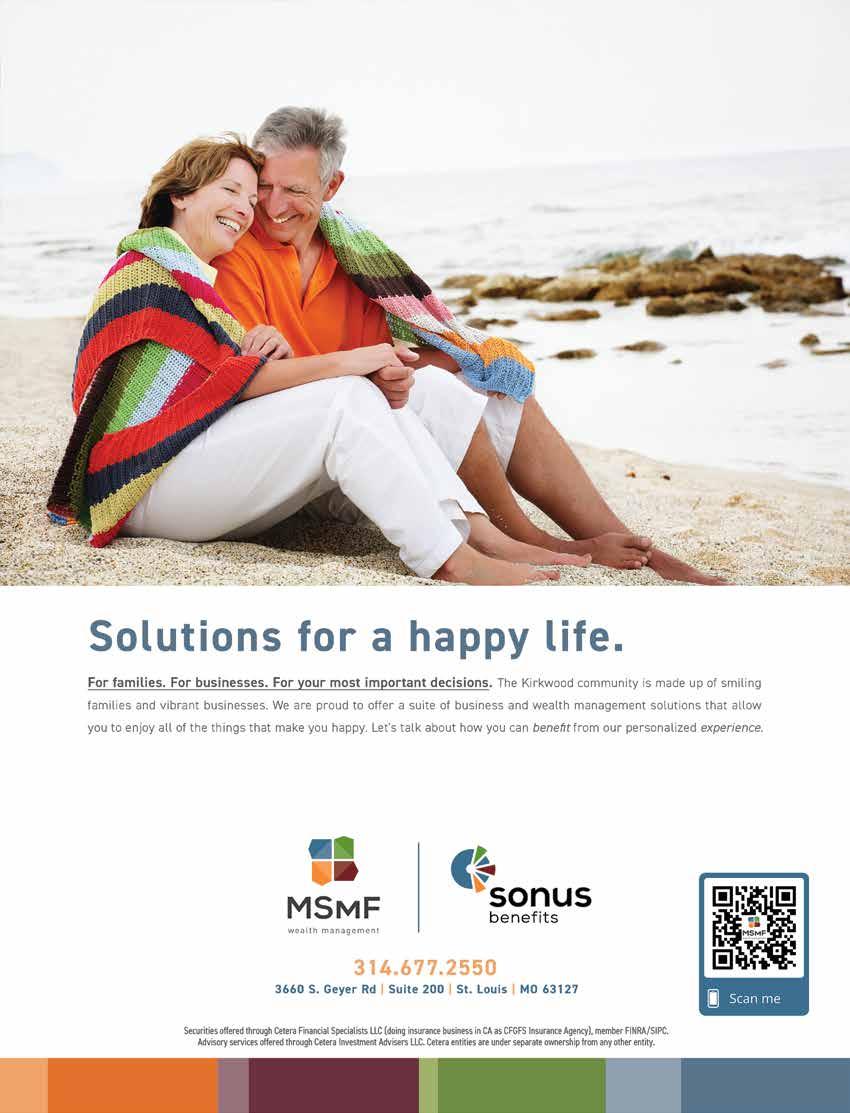
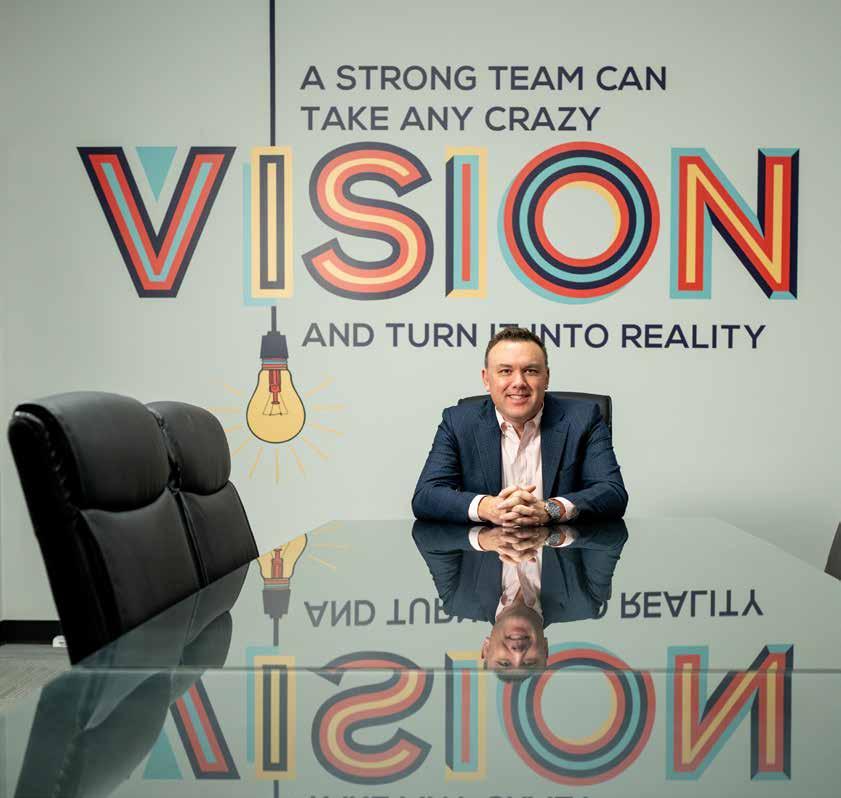
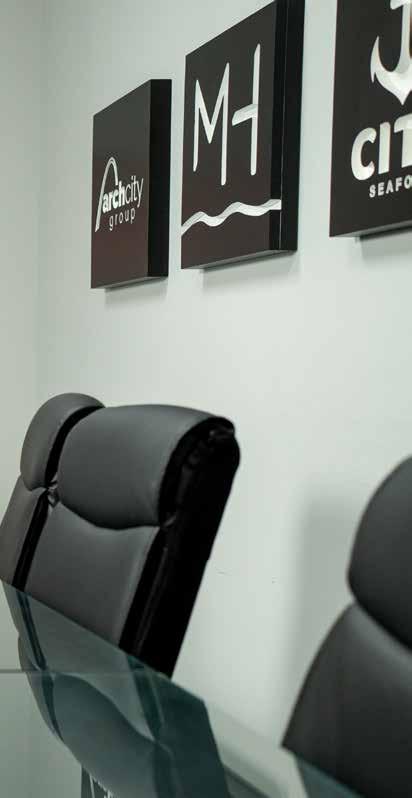
ARTICLE BY LUCY ROGERS PHOTOGRAPHY BY ADAM HUBER
Most people in Kirkwood know him as Sara’s friendly husband or the dad keeping up with five energetic kids. But in the business world, Brad Burns is a nationally recognized entrepreneur, a master of operational efficiency, and the visionary founder of Burns Holding Corp.—a powerhouse portfolio of five thriving companies. His journey isn’t just about business; it’s about seeing opportunities, visualizing the potential, and investing in people, the community, and the future.
Last summer, Brad threw down a challenge to his college intern: “Take the next two years to focus on making money. Forget partying. Forget distractions. Graduate with real cash in your pocket, then come back to Burns Holding Corp., and I’ll show you how to turn what you earned into a comfortable lifestyle by the time you’re 30.” This anecdote isn’t just about mentorship. It’s about Brad’s philosophy— success starts with investing in yourself.
Growing up in a small town, Brad wasn’t expected to attend college. No one in his family had gone, and no business owner, mentor, or family friend was there to offer career advice. There was no internet to guide him from having a concept to creating a company. But after earning a degree from the University of Missouri, Brad knew one thing: he wanted to build something of his own. “I always knew I wanted to do something on my own. I just didn’t know what it would be,” said Brad.
Fast-forward to today, and he’s done just that. Brad, a self-made entrepreneur, has been named to the Forbes Next 1000 and the Titan 100 and joined America’s most elite gathering of Inc. 5000 entrepreneurs.
Brad founded his first company, Wayne Contracting, in 2014. From there, he built Burns Holding Corp., which now includes Wayne Contracting, Vizex Branding, Meramec Hardscapes and Concrete, Meramec Pools, City Seafood

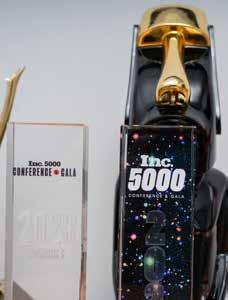

Co., and Arch City Group. Brad founded or co-founded all of these companies without outside investment.
“If you asked me 15 years ago if these were the companies I’d own, I’d have said no way,” says Brad. “I’m not a concrete guy. I’ve never done signage. I’m not a landscape designer. I’m not a fishmonger or a restaurant person.” He is a systems expert. Burns Holding Corp. operates as a vertically integrated ecosystem where shared resources— accounting, HR, and marketing—drive efficiency and profitability.
Where does his confidence come from? “I think part of it is just in my DNA. I’ve always been able to figure things out,” Brad says. He thrives on small wins, leveraging momentum to keep moving forward. “I focus on stacking the small wins. There have been bumps and some unexpected losses, but I’m unphased by them.” Brad chooses to focus on the data, find what works, and follow that path forward. “The benefit of running five companies is that if one company is struggling, I’m not surrounded by that negativity. I can focus on the small wins from the other companies and use that positive momentum to get all the companies moving in the right direction.”
That mindset has paid off. Inc., Entrepreneur, Financial Times, and the St. Louis Business Journal have recognized the portfolio companies within the Burns Holding Corp. Wayne Contracting and Vizex Branding both landed on the 2024 Inc. 5000 list.
“There is a confidence and a gratification that comes from taking something that wasn’t there before and being recognized for it. When the companies receive accolades, it signals that I must be doing something right,” said Brad.
But despite the accolades, he isn’t immune to imposter syndrome. “It’s not uncommon for me to think, ‘Do I deserve this?’” That doubt disappeared last October when he attended the Inc. 5000 Masters. Brad came home with a laser-focused vision for his companies. “My goal is to get over $10 million in revenue for all five companies,” said Brad. He noted that a company won the Inc. 5000 Lifetime Achievement Award for making the list 17 times. “That’s what I want,” stated Brad.
When it comes to leadership, Brad keeps it simple: “I’m like a Swiss Army knife. I can do a little bit of everything. But taking a company from good to exceptional—that’s on my team.”
His leadership philosophy? No hand-holding. “I’m not going to praise you for doing your job. If you need constant validation, we’re probably not the right fit. But if you want autonomy and the chance to own your role, there’s no ceiling here.”
That no-nonsense, high-expectation approach has created a culture of self-starters. Employees aren’t just given responsibilities—they take them.

Beyond his businesses, Brad is committed to shaping the next generation of leaders. As an active board member for Junior Achievement, he takes a hands-on approach to inspire young entrepreneurs to see education and business as a path to independence. He’s also working with the Missouri Centers for Advanced Professional Studies (CAPS) to mentor students through real-world business challenges. Brad explains his vision for the CAPS student research project. “I want to expand City Seafood, so I’m going to have the student research markets, consider the cost of entry, identify the competition, and detail the opportunity.”
As the dad of five kids, we wondered if Brad’s goal is to bring his kids into the businesses? “Of course,” Brad laughs. “At this point, they’re all nice. But we’ll see.” Last summer, he challenged his three oldest kids to create a business plan. One day, his daughter Chloe walked in with a group of

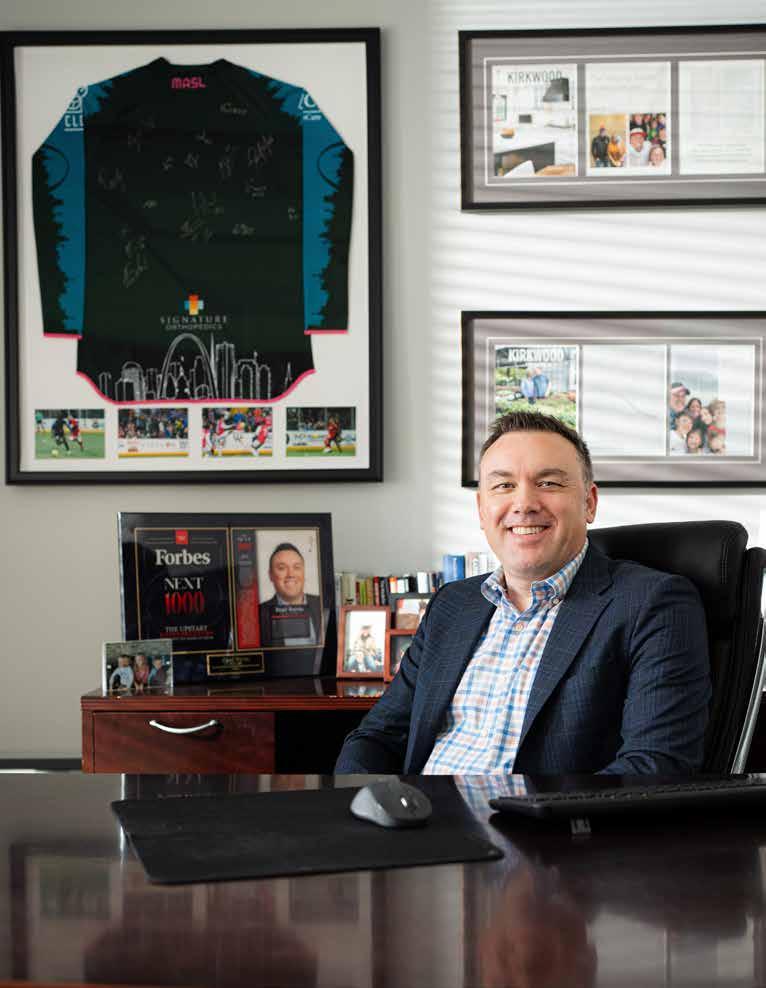
neighborhood girls—each holding a stack of cash. It turns out that Chloe had hired them to run lemonade stands at opposite ends of the neighborhood while she managed supply and demand. “She made some nice money,” Brad says proudly.
Brad Burns doesn’t just build businesses—he sees opportunities and has the vision to create something from nothing. Whether investing in his employees, mentoring future entrepreneurs, or turning small wins into award-winning successes, his approach is the same: seize the opportunity, create a vision, and execute relentlessly.
With a corporation that continues to scale and a mindset built for growth, Brad is proving that true success isn’t about the industry—it’s about the vision .
theburnscos.com waynecontracting.com vizexbranding.com cityseafoodstl.com meramecpools.com meramechardscapes.com archcitygroup.com
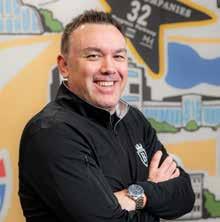
“If you asked me 15 years ago if these were the companies I would end up owning, I would have said no way,” said Brad.
Brad founded his first company, Wayne Contracting, in 2014. From there, he built Burns Holding Corp., which now includes Wayne Contracting, Vizex Branding, Meramec Hardscapes and Concrete, Meramec Pools, City Seafood Co., and Arch City Group. Brad founded or co-founded all of these companies without outside investment.
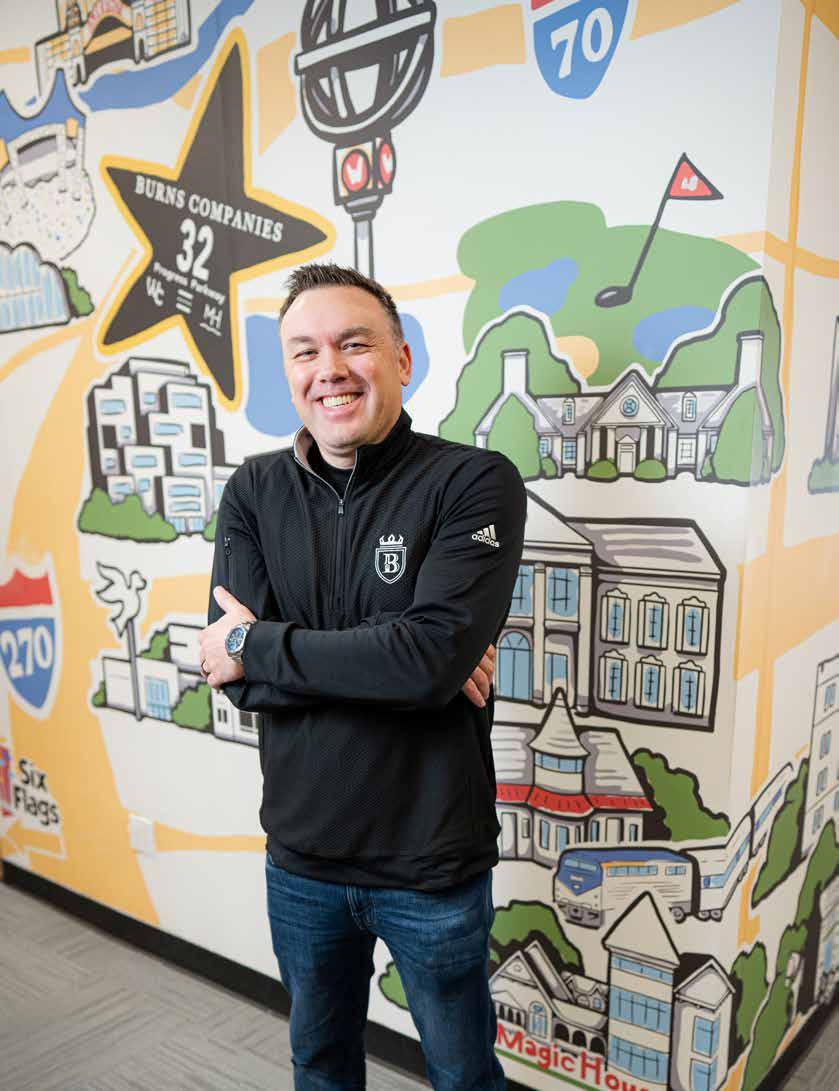
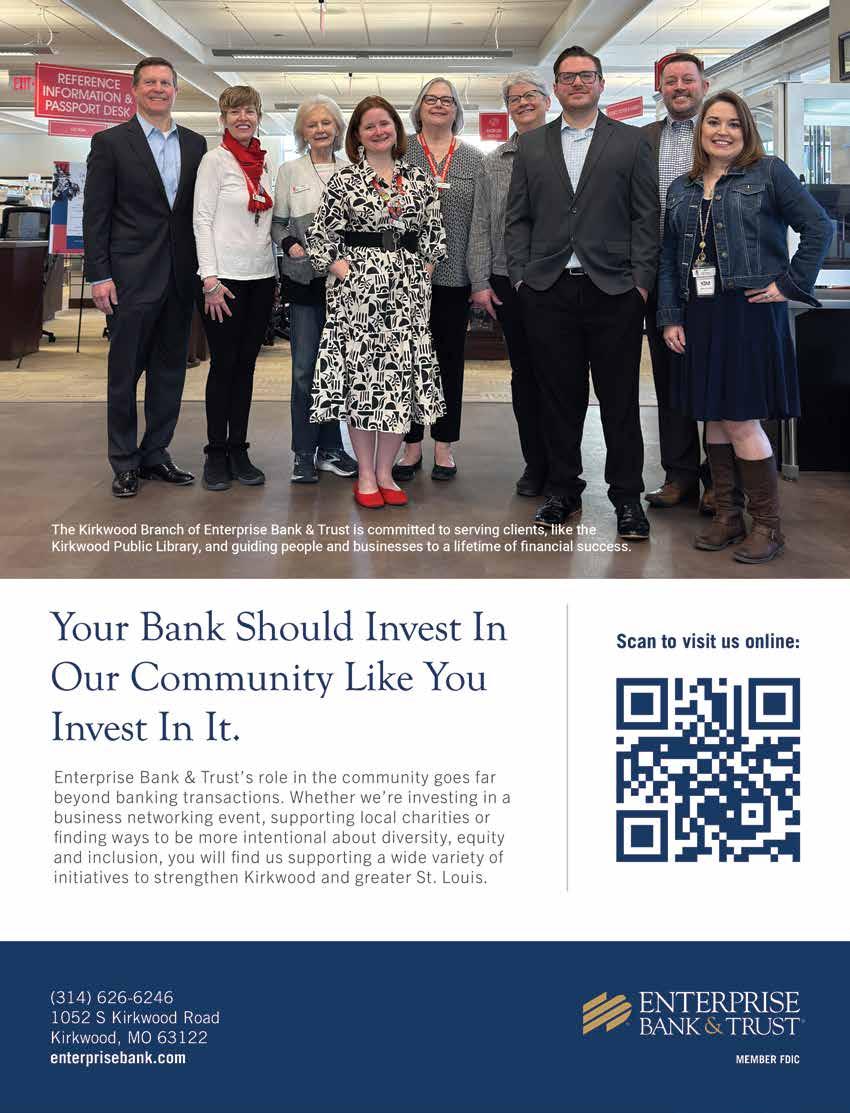



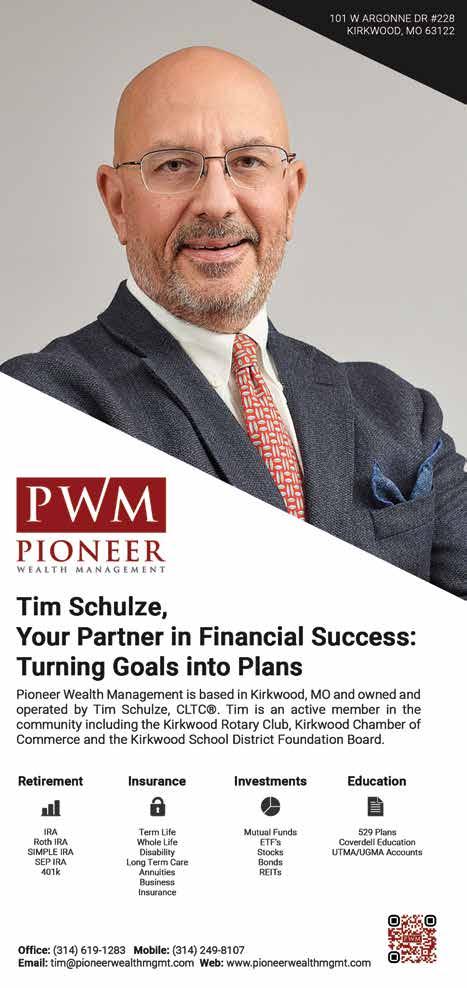
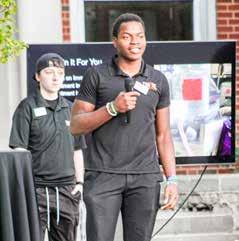
Observations from Jerry Rosen, Executive Director of the Webster Groves/Shrewsbury/Rock Hill/Brentwood Area Chamber of Commerce
Next up into the tank is Webster Groves elementary school student Shari Bloom, who has a twist on the age-old backpack. This 4th grader is bound and determined to change the world with her entrepreneurial new business idea she calls the ‘Pillow Pack.’ As Shari approaches the microphone in front of an auditorium filled with teachers, classmates, friends, and family, she begins her pitch:
“My laptop, phone, extra hoodie, and heavy books put a real strain on my back and shoulders, which slows me down and will ruin my posture by the time I reach 6th grade. So I created the Pillow Pack.”
Shari continues her pitch by presenting her product prototype to the judges. It is a backpack with two pillows replacing the straps. The audience applauds, and Shari collapses with exhaustion, having just completed her first WG Thrive pitch competition.
Encouraging young minds to innovate new business ideas and step into entrepreneurship sparked the Webster Groves School District to establish the WG Thrive Program for elementary, middle, and high school students. The WG Thrive student incubator program provides a safe, innovative, and challenging environment that exposes students to real entrepreneurial opportunities with the support of industry and community leaders.
The Webster Groves, Shrewsbury, Rock Hill, and Brentwood Area Chamber of Commerce works with the School District to secure grants that support the program and award student ventures with cash prizes. The Chamber is proud to support WG Thrive with a panel of judges and the competition’s emcee.
WG Thrive is a program designed to tap into the limitless creativity of problem-solving. Drawing from their own
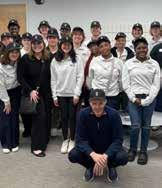
Encouraging young minds to innovate new ideas and step into entrepreneurship sparked the Webster Groves School District to establish the Thrive Program. “

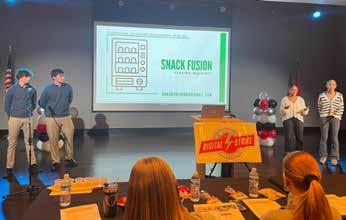
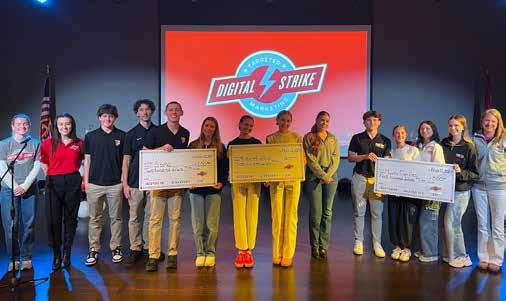
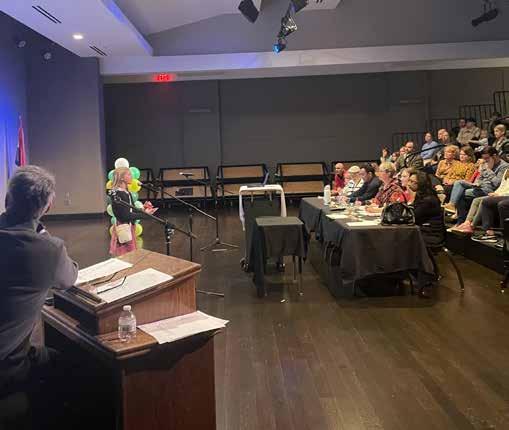

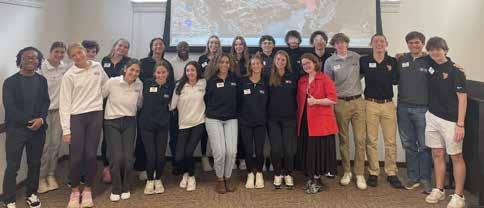
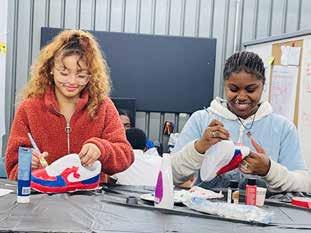
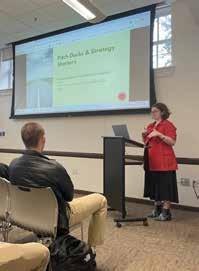
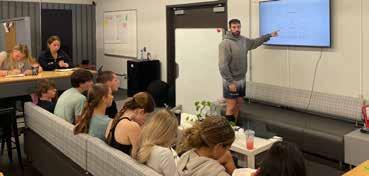
interests, students are driven by personal experience and passion to fuel their ideas. They learn how to identify a problem, innovate a solution, validate through research, and break through the fears often associated with presenting in front of an audience. The net result is growth, confidence, and maybe a check.
These young students are the future of the Chamber of Commerce as they learn the building blocks of entrepreneurship. They experience the thrill of winning and the agony of defeat. WG Thrive is a great learning opportunity for real-life lessons beyond business.
The WG Thrive pitch competition teaches students the fine art of storytelling. The process challenges students to simplify their ideas into a digestible five minutes. Every word becomes a currency that must be invested with an intention that takes the audience through a three-act play. In the first act, they learn how to open strong with drama, suspense, and emotion as they stage the ‘problem.’ The middle act rallies around the solution, with the ending act recapping the traction and asking the audience to help seed their idea. What follows is a rousing round of applause and maybe a standing ovation.
Standing in front of your peers, teachers, friends, and family can be a very daunting experience.
Overcoming nerves is a huge accomplishment and one to celebrate for most students. Gaining confidence at a young age and breaking through fear pays huge benefits beyond that moment on stage. That feeling of accomplishment stays with students throughout their lives and continues to grow as they mature into the world.
WG Thrive students develop an intense pilot light that burns strong with a tenacity to plow through challenges and a thick skin not to be offended by feedback. Entrepreneurial spirit requires a warrior’s will and a survivor’s resilience to never give up.
WG Thrive sets the standard as an ideal example of how public education, business, and local community can partner to provide real-world, practical skills for the future workforce. The WG Thrive program invests in creating incredible entrepreneurs, but it also invests in teaching kids how to conquer their world.
For more information about the Webster Groves/ Shrewsbury/Rock Hill/Brentwood Chamber visit webstershrewsburychamber.com
For more information about WG Thrive visit webster. k12.mo.us/programs/thrive-incubator

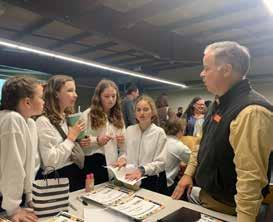
Gaining confidence at a young age and breaking through fear pays huge benefits beyond that moment on stage. “
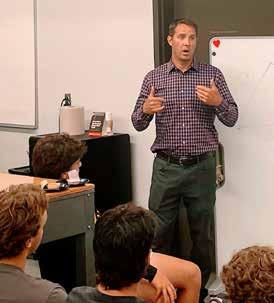


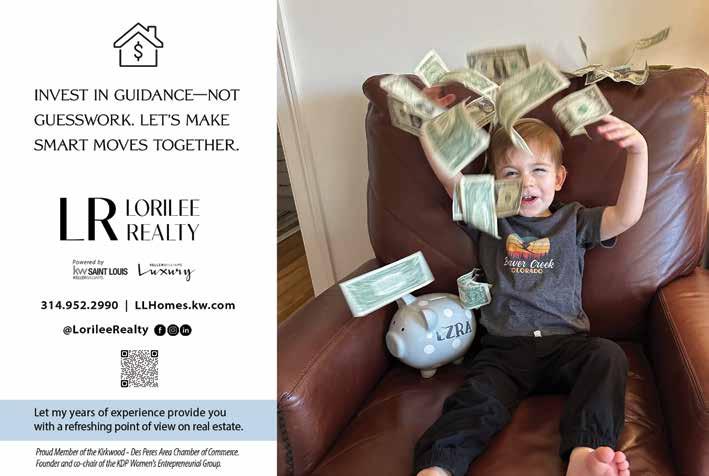


“What
was the best investment you made in your home to fit your family?”

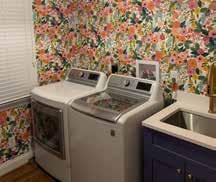
Our old garage did not match our house, and we needed additional parking with more drivers in our family. We have loved having this convenience, especially with the recent winter weather!

ARTICLE BY ANDREA MADDOCK
When we purchased our home, one of our goals was to move laundry from the basement to the 2nd floor, as we saw in many newer builds. This made doing laundry more convenient and efficient. Adding wallpaper and custom-painted cabinets helped brighten up a dull space. Now, folding laundry is more fun with this view.
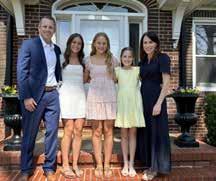

With our kids getting older, we needed a bigger living space. We removed a wall creating an open flow between the kitchen, hearth room, and main living area. This space is exactly what we wanted, and we enjoy entertaining family and friends!


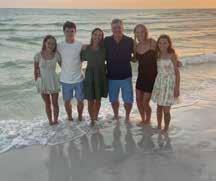

We needed a guest bathroom to entertain out-of-town guests. Kristie from Walnut Lily Design did an excellent job, carefully examining every detail and bringing our vision to life. We love it!
As the owner of The Cheerier Interior, Allison saw the powder room as the perfect opportunity to have fun. The color and pattern in the small space spruce up the wow factor. What was four boring walls is now a little jewel box.






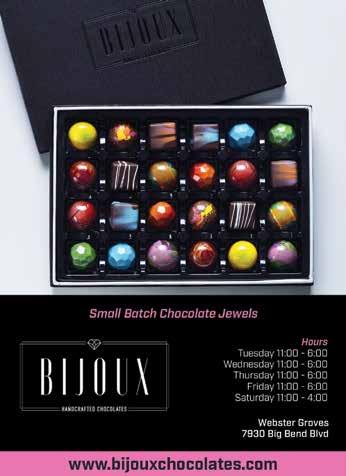




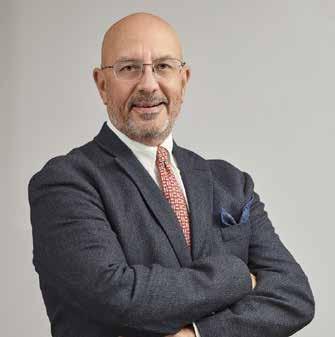

Pioneer Wealth Management’s Tim Schulze offers tax advice for homeowners
ARTICLE BY TIM SCHULZE, CLTC® CPFA PHOTOGRAPHY BY PIONEER WEALTH MANAGEMENT
Maximize savings and minimize taxes with smart home and retirement strategies in 2025.
1. H omeowners can now exclude up to $250,000 in profit from selling their primary residence ($500,000 for married couples) if they lived in the home for at least two of the last five years. Still, this exclusion is only available if no previous gains were excluded in the past two years. Exceptions exist for divorce, health issues, or military service, so it’s important to consult a tax professional for advice on your case.
2. O ne key tax decision when planning for retirement is whether to pay off your mortgage early. The answer isn’t straightforward. While paying off your mortgage can free up cash for other expenses, investing your funds instead of paying off a low-rate mortgage might offer better financial returns over time.
3. Taxpayers can offset losses against gains, potentially carrying excess losses to reduce future taxes. Capital gains are profits from selling an investment for more than its purchase price. They are taxed differently depending on whether they are short-term or long-term. Long-term capital gains are taxed at specific rates based on income, with additional taxes on high earners. Explore tips and resources at pioneerwealthmgmt.com

“When you invest in an organization like Webster Arts, you’re not just investing in the organization. You are investing in the community,” said Webster Arts Board President Patrick Murphy. “Webster Arts has been around for 20 years. Everybody associates us with the art fair. About three years ago, we took a big leap as an organization and leased a space at Big Bend and Lockwood. This enabled us to grow in various ways; to have more events, to have a street presence, to better engage the community, and to be more visible.”
Webster Arts Gallery, located at 2 Summit Ave. in Webster Groves, is a community event space for classes and workshops. “We bring in leading artists from the community, like


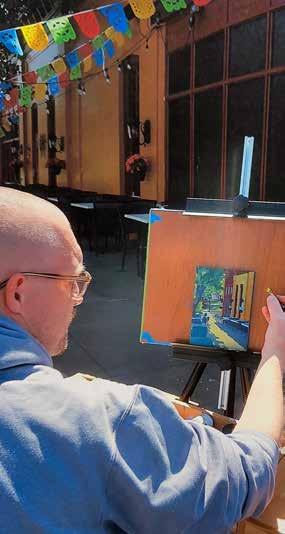
The arts shape a community’s overall vitality, identity, economic growth, and the lives of everyone.




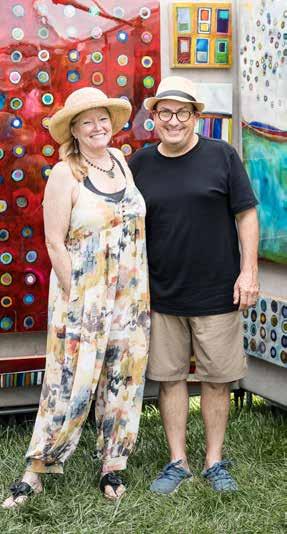
Marilynne Bradley, the watercolorist, and Michael Silverman, the musician,” said Patrick. “We have conversations about their art, their lives, and how community life and art intermingle. People leave feeling refreshed, looking at life differently.”
One of Webster Arts’ newest community engagement events is Art & Found. “We take over 50 pieces of good art from people’s attics and basements and pieces donated by significant artists,” explained Patrick. “We wrap the art in brown paper and place it throughout the community for people to find. The message on the packaging encourages people to take the art home. It is cool because it’s a fun way to discover art. We want to do the unexpected. We want to do the unusual. We want to

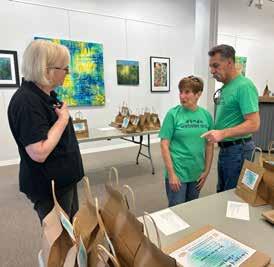
keep coming up with creative ideas that evoke a feeling of wow in people because that’s what art should do. Art should be a fun, gentle knock on your head to get you thinking differently.”
Patrick credits the staff and the board for the evolution of the organization. “It has been wonderful because Webster Arts is returning to the heart and soul that it had from the very beginning,” said Patrick. “But today, we have more resources, more investment and support, more recognition, and it can only get better. There’s no end to what we can become because there’s no end or limit to human imagination.”
www.webster-arts.org

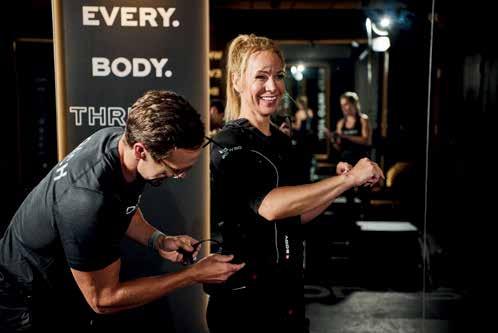











Investing in your future is really an investment in your family.
Let me ask you a question: How would you feel about your parents or spouse being at home alone if you were gone for three weeks? If you were worried, would you make a plan or post the emergency phone number on the refrigerator and hope for the best?
Jeff Balleau, founder of Transitions for Senior Living, an entirely cost-free senior living placement service, says their team works with two types of families: families who receive guidance to map out a healthy aging plan and families who are suddenly faced with a crisis because they don’t have a plan.
Mark Finke, Managing Partner at MSMF Wealth Management and co-author of the book, “So You Think You Are Ready To Retire,” recommends creating a healthy aging plan, and money is not at the top of that list.
Jeff and Mark agree that considering the health, happiness, and quality of life of your spouse, your kids, your parents, and most importantly, yourself and your lifestyle take precedence over the cost of a healthy aging plan. These two experts discuss why and how to create a plan for healthy aging.
Planners work with financial experts, explore options, and ensure they have
ARTICLE BY LUCY ROGERS
PHOTOGRAPHY BY CAREY CAMPBELL
something on paper with copies for designated family members. Families without a plan scramble, make rushed decisions under pressure, have fewer choices, and face higher direct and indirect costs. The Transitions team knows that it is better to have a plan in place that you may never need than to need a plan that you don’t have.
Mark suggests a powerful exercise: Ask yourself, “In 10 or 15 years from now, what will happen when you or a loved one needs help getting dressed in the morning?” Mark said that, more often than not, this question is met with a blank stare. He works with individuals and families to guide them from that question to considering options and creating a plan to cover future costs. Mark advises that individuals between the ages of 50 and 60 consider long-term care insurance as part of their healthy aging plan. The
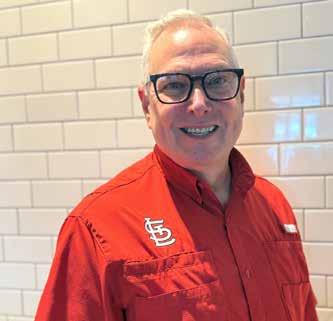
average assisted living cost for one person is currently between $6,500 and $7,000 per month. Mark said the return on investment for long-term care insurance protects against the escalation of care costs.
Are you thinking of relying on your children or family for support? Consider this: Family caregivers spend an average of 24-38 hours per week providing unpaid care. That’s time away from their families,
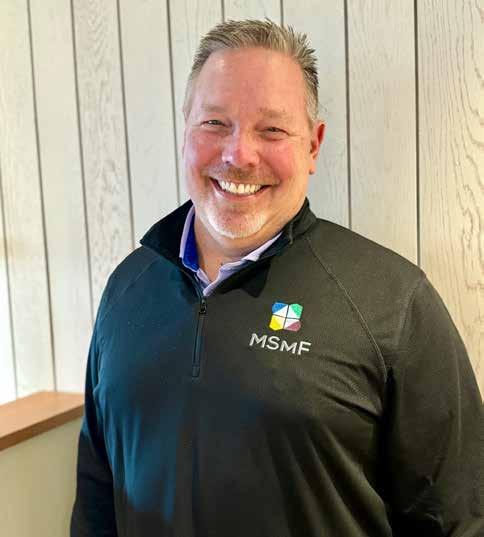
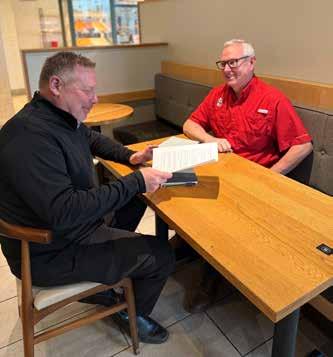
careers, and personal well-being. And let’s not forget the toll on spouses—many who take on caregiving responsibilities end up with health issues of their own. The most common crisis phone call the Transitions for Senior Living team receives is from a daughter who says, “My mom’s health is failing, and she is my dad’s primary caregiver.”
Mark and his team encourage healthy aging conversations long before a family crisis. “We want to have these long-term care conversations while everyone is healthy,” said Mark. Working with the Transitions for Senior Living team and having experience and guidance toward a great plan costs nothing. Planning for your family is everything.
For more information about healthy aging and retirement, visit MSMF.com . To simplify the search for senior care options, visit transitionsforseniorliving.com .


I frequently get asked by clients, “What should I do to sell this house for top dollar?" While a full renovation, a brand-new kitchen, or even an addition might sound enticing, is that really the best option?
With my background in design, preparing homes for sale is my favorite part of this business. I love walking through each room and offering tailored advice to help your home stand out to today’s buyers. It might be as simple as adding a fresh coat of paint, fixing a broken door, or rearranging furniture to make a space feel larger. No matter what it takes, we’ll collaborate to find the best solution for your home.
As a proud Glendale resident and your trusted real estate advisor, let’s discuss the many ways you can boost your home's value. My goal is to help you prepare your home to sell in today’s market and achieve top dollar!
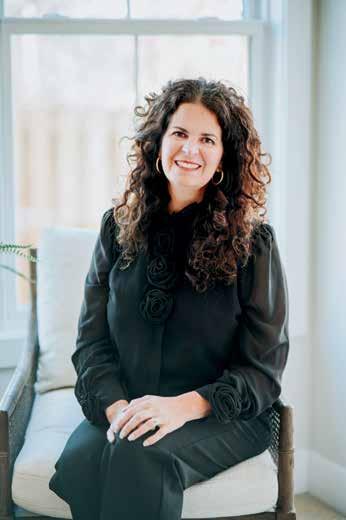


ARTICLE BY KATIE ELIZABETH | PHOTOGRAPHY PROVIDED
Many of us dedicate plenty of time to family, but are we making that time truly impactful? Are we teaching valuable lessons? More importantly, are we investing in our family’s health and experiencing the joy of wellness together?
How we talk about health and wellness shapes not just habits but attitudes. These aren’t just conversations—they’re opportunities to empower, inspire, and create lifelong well-being. Bedtime isn’t just about turning off the lights; it’s about giving our bodies the recovery they crave. Exercise isn’t about shrinking our bodies but celebrating their strength.

Good nutrition is about nourishment, not deprivation. These discussions empower us to take control of our health and well-being. The secret is intention—approaching each conversation with love, patience, and understanding what truly resonates with each generation.
Children are naturally curious, making their early years the perfect time to introduce joyful, foundational wellness habits.



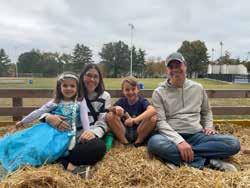
How to have health and wellness
conversations with love, patience, and understanding what truly resonates with each generation.



Make it fun: Turn fruits and veggies into an adventure and let them play chef in the kitchen. Make movement part of playtime—think dance-offs, nature hikes, or backyard obstacle courses.
Be their role model: Little ones learn by watching. They’ll want to join in if they see you savoring a vibrant salad or dancing to your favorite song.
Speak their language: Say, “Eating colorful foods helps you run faster and play longer” instead of “You need vitamins.”
Teenagers crave independence, and social circles often shape their choices. Instead of dictating, invite them into a relatable and empowering conversation.
Find their ‘why’: Frame health around what matters to them— glowing skin, better concentration, or more stamina for sports or gaming marathons.
Be a safe space: Teens are navigating body image pressures, mental health challenges, and shifting self-esteem. Listen without judgment and offer guidance when they’re ready.
Encourage balance: Health isn’t about extremes. Help them see that wellness is about nourishment, movement, rest, and self-compassion— not perfection.
Self-care can be neglected between work deadlines, social lives, and bills. This is where honest, practical conversations matter most.


Acknowledge their struggles: They’re juggling a lot. Validate their challenges and help them find small but meaningful ways to prioritize health.
Offer easy wins: Share simple, realistic wellness tips, such as meal-prepping on Sundays or fitting in a 10-minute workout between emails and phone calls.
Talk about mental health openly: Stress, burnout, and anxiety are real. Normalize conversations about therapy, mindfulness, and taking mental health days.
Encourage preventive care: Routine check-ups, screenings, and daily self-care aren’t chores—they’re investments in a thriving future.
When it comes to aging loved ones, wellness discussions can be delicate. The focus? Maintaining joy, mobility, and quality of life.
Lead with love: Acknowledge their wisdom and experiences before offering advice.
Frame it positively: Instead of saying, “You need to eat better,” try, “This will help keep you strong for everything you love to do.”
Introduce change gently: Small shifts—like swapping one meal a day for a healthier option—are more sustainable than drastic overhauls.
Be proactive, not reactive: Discuss topics like fall prevention, brain health, and staying socially connected before they become major concerns.
Celebrate wins together and remind your loved ones (and yourself!) that wellness isn’t about being perfect—it’s about feeling your best at every age.
Katie Elizabeth, owner of Strong By Intention , helps busy professionals regain control of their health with customized fitness and nutrition coaching tailored to their lifestyle. Strong By Intention programs go beyond weight loss to focus on sustainable habits and building a positive relationship with food and exercise to achieve lasting results without being overwhelmed.
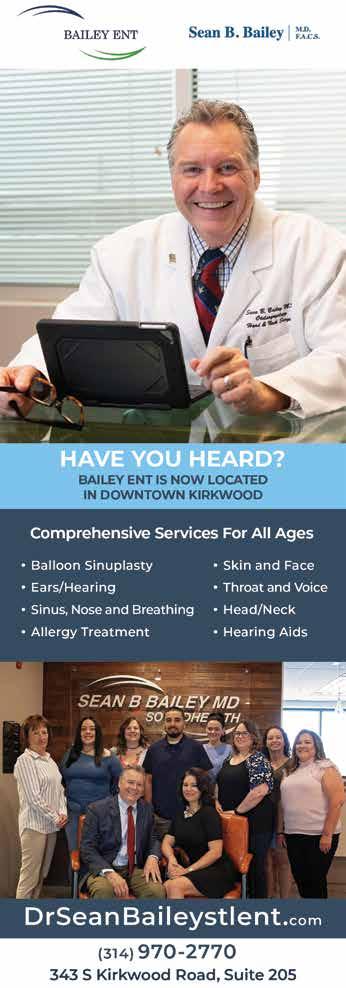



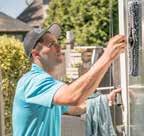


















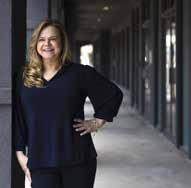


2 3 4 5
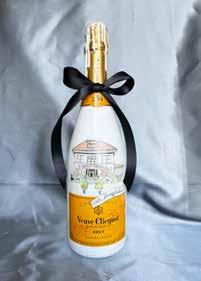
Top 5 house warming gifts from locally owned businesses.
ARTICLE BY LORILEE CUMMINGS, LORILEE REALTY
1 - GLOW CANDLE CO : Glow Candle Co candles are clean-burning and made with all-natural, eco-friendly soy wax from American-grown soybeans. And can we talk about the scents?!
2 - LIST IT WITH LORILEE : What is your favorite locally owned business? List it with Lorilee at lorilee@kw.com.
3 - BIG HEART TEA CO : Founded in 2012 by Webster Groves resident Lisa Govro, aims to make healing herbs and teas more fun and accessible.
4 - ANYWHERE TOWEL : Each towel is made from three recycled plastic bottles and can be found at Cornucopia in Downtown Kirkwood.
5 - WRAPPED + WRITTEN : Wrapped + Written adds a personalized touch of elegance with beautiful calligraphy, engraving, and product painting. wrappedwritten.com



